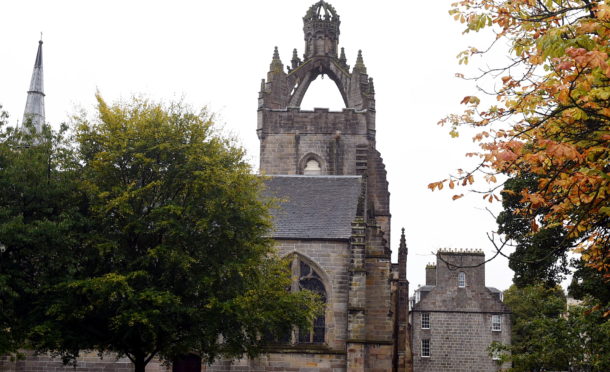MSPs want to quiz Aberdeen’s two universities on their plans to become “financially sustainable” after the sector’s struggles were laid bare in a new report.
A study by the Auditor General for Scotland found that a combined £68 million surplus recorded by Edinburgh, Glasgow and St Andrews universities in 2017/18 was masking “significant variation” elsewhere.
Aberdeen University was the only one the nation’s four ancient universities to post a deficit in 2017/18, as it had done in each of the preceding three years, although it said last night it was expecting a “small surplus” for 2018/19.
Robert Gordon University (RGU) was another of the six institutions to record deficits four years running to 2017/18.
Last night, Holyrood’s public audit convener Jenny Marra said her committee now wanted to “examine the financial gap” between those generating surpluses and the six with recurring deficits.
She added that the MSPs will want to hear how they “intend to become financially sustainable in the longer term”.
The University of the Highlands and Islands (UHI) was one of four further institutions to move from a surplus to a deficit in the four years, meaning that 10 out of the 18 institutions were in deficit in 2017/18.
Caroline Gardner, Auditor General for Scotland, said the findings showed that “a small number of universities are stretching ahead of the rest”.
The report said that UHI and RGU also accounted for two of three “most notable” reductions in financial performance when measured by the “better indicator” of EBITDA (earnings before interest, tax, depreciation and amortisation).
The EBITDA position in the four-year period improved for all universities except the six “moderns”, with UHI’s falling by 87% in the period and RGU’s reducing by 58%.
According to the study, more recently established universities were more reliant on Scottish Government funding and it had fallen by 7%, or £91 million, in real terms.
Some universities were able to record income rises, mainly a result of non-EU tuition fees, but Aberdeen only increased that funding source by £3 million or 12% in the period, compared to 23% at St Andrews, 39% at Edinburgh and 56% at Glasgow.
UHI and RGU experienced the largest decreases in income from such fees over the four years, after only Scotland’s Rural College, falling by 24% at UHI and 21% at RGU.
The sector’s overall income increased by 3% in the period, but it had actually reduced at nine of the 18 universities, including Aberdeen, where it fell 9% from £241 million to £219 million, and RGU, where it declined by 12% from £107 million to £93 million.
Several other looming financial pressures were identified in the report, including soaring pension costs, Brexit and a near £1 billion maintenance bill, which is as high as almost 21% of income at Aberdeen University, largely due to Marischal College.
Last night, an Aberdeen University spokeswoman said its funding had been cut in line with the 7% real terms reduction across the sector.
She added: “We have worked hard to address our position and for 2018/19 are forecasting a small underlying surplus reflecting an upward growth in our income.”
A UHI spokeswoman said: “As a relatively new organisation, we are working hard to diversify and develop our income streams.”
An RGU spokesman said last year’s deficit was down to three “exceptional costs”, but that the university “has a strong, liquid balance sheet and remains financially stable”.
He added that the oil and gas downturn had affected student recruitment, but that new strategies were in place.
An RGU spokesman said last year’s deficit was down to three “exceptional costs”, but that the university “has a strong, liquid balance sheet and remains financially stable”.
He added that the oil and gas downturn had affected student recruitment, but that new strategies were in place.










